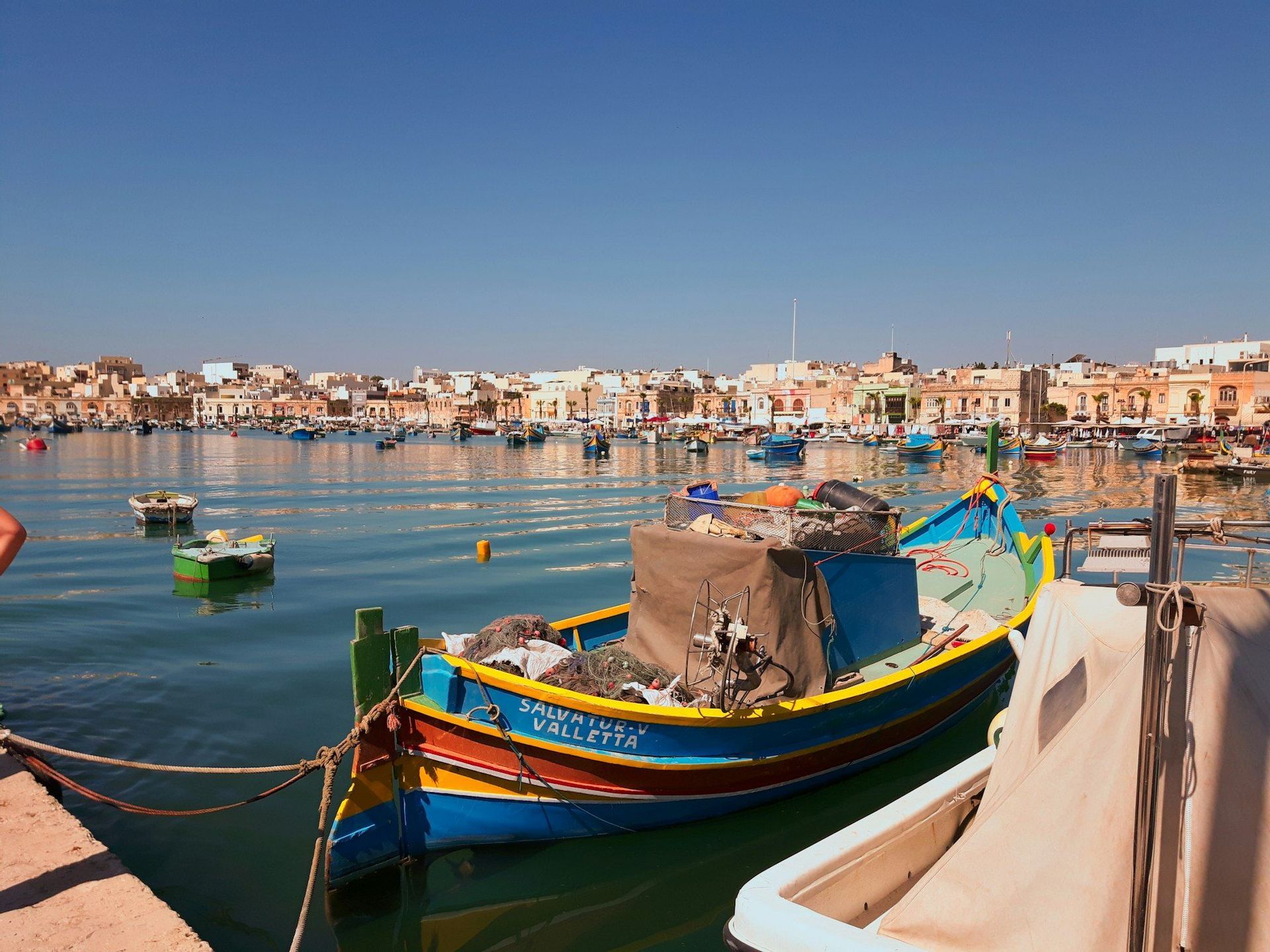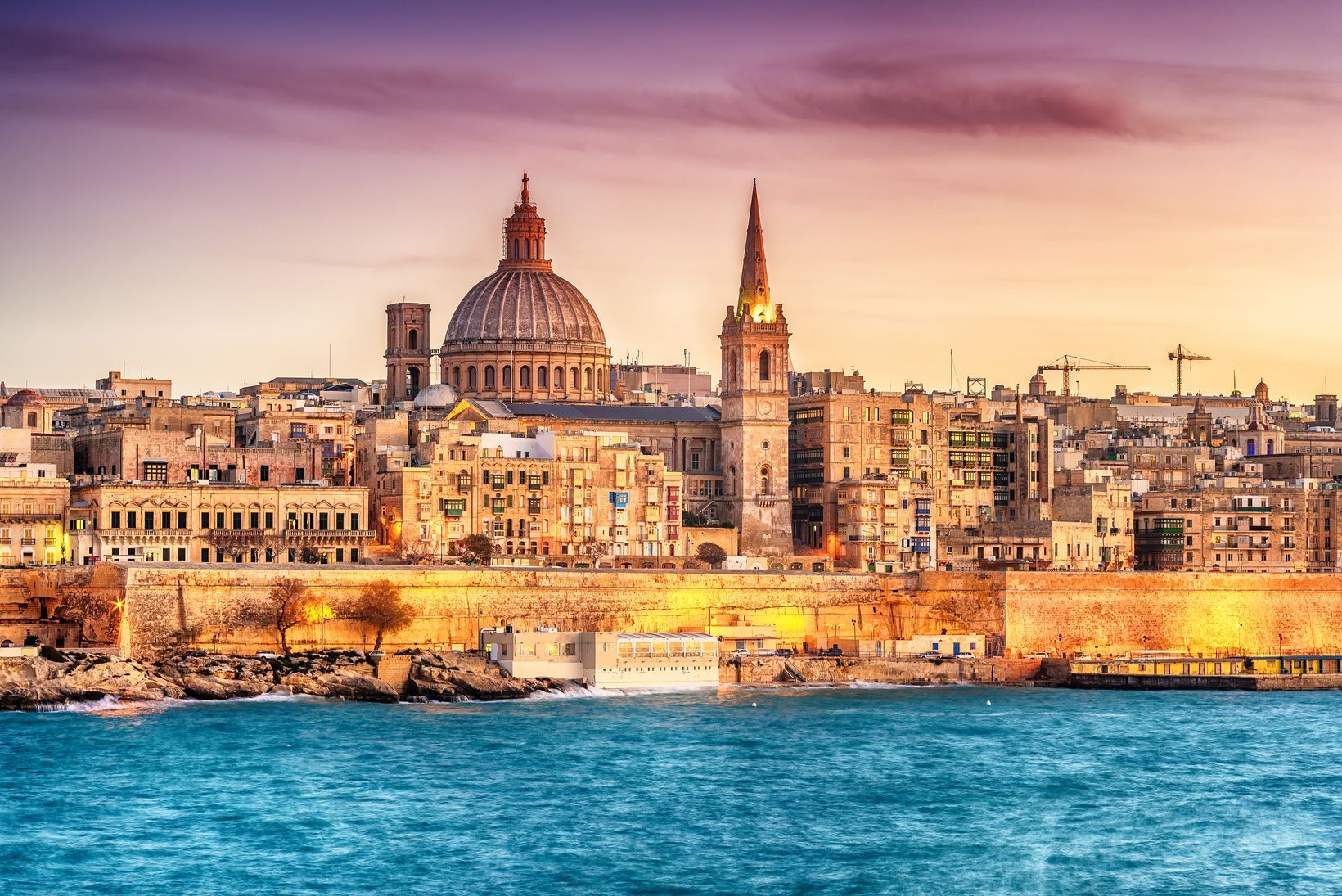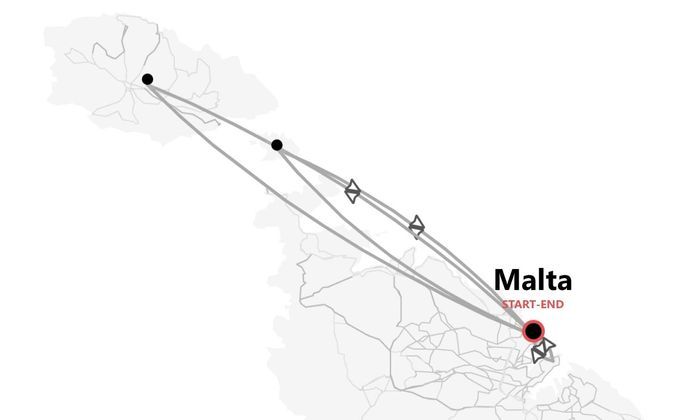
Group trips to Malta
Our organized trips to Malta
Though seemingly small on the map, Malta unfolds as a colossal tapestry of ancient wonders and Mediterranean charm, a vibrant island nation where every stone whispers tales of millennia. It's a land where history comes alive at every turn, from the majestic Baroque capital of Valletta, a UNESCO World Heritage site guarding its dramatic Grand Harbour, to the silent, honey-hued streets of Mdina, offering timeless elegance. Venture beyond the main island to discover Gozo's stunning azure coves and sun-drenched landscapes, perfect for intrepid explorers and sun-kissed dreamers ready to immerse themselves in Malta's unique, captivating culture and unparalleled beauty.
FAQs about Malta
If you are a UK citizen, to find out the entry requirements for Malta, you can check this informational page from our partner Sherpa. If you need a visa, you can apply for it through Sherpa. If you are not a UK citizen, you can still use Sherpa by changing the nationality in the 'Passport' section.
Before traveling, always remember to check the government website of your country of origin for updates on the entry requirements for Malta – you wouldn’t want to stay home due to a bureaucratic detail!
- UK residents: review the FCDO Travel Advice.
- US residents: consult the US Department of State Travel Advice.
- Other residents: refer to your government or local consulate's travel advice.
Malta is in the Central European Time (CET) zone, which is 1 hour ahead of the UK. So, if it is 12pm in the UK, it will be 1pm in Malta. If you're in the USA, the time difference will vary. For example, if it is 12pm Eastern Time, it will be 6pm in Malta. Keep in mind that Malta follows daylight saving time, so from the last Sunday in March to the last Sunday in October, the time difference may change.
The currency used in Malta is the Euro (EUR). If you're exchanging from GBP, USD, or other European currencies, you can do so at:
- Banks
- Exchange offices
- Some hotels
The daily exchange rate can vary, so it's a good idea to check the current rate before you exchange.
In Malta, you can pay with credit cards, debit cards, and cash. Most places accept major credit cards like Visa and Mastercard. However, it's always good to have some cash on hand, especially for smaller shops or markets. ATMs are widely available if you need to withdraw cash. Remember, the currency in Malta is the Euro.
In Malta, tipping is not obligatory, but it is appreciated for good service. In restaurants, it's common to leave around 5 to 10 percent of the bill if you were happy with the service. In bars, rounding up to the nearest Euro or leaving small change is a nice gesture. For taxis, you can round up to the nearest Euro. Hotel staff, like porters or housekeeping, will appreciate a few Euros for their services.
In Malta, you can enjoy reliable internet connectivity. As Malta is in the Schengen area, you can use your existing data plan with roaming if you're from the EU. Wi-Fi is widely available in hotels, cafes, and public spaces, so you should find it easy to connect while you're there.
If you prefer a local option, buying a SIM card is straightforward. Providers like GO, Epic, and Melita offer prepaid SIMs with data plans. This could be a great choice if you plan to stay longer or need a lot of data for navigation and streaming.
In Malta, the official languages are Maltese and English. Most people speak English fluently, so you'll find it easy to communicate. Here are some useful Maltese expressions you might hear or use:
- Hello: Merħba
- Thank you: Grazzi
- Yes: Iva
- No: Le
- Please: Jekk jogħġbok
In Malta, the plugs used are Type G, which is the same as in the UK. The voltage is 230V and the frequency is 50Hz. If you're coming from a country that uses a different plug type, we suggest you bring a universal adapter to ensure all your devices can be charged without any issues.
In Malta, the main religion is Roman Catholicism. The country has a strong Catholic heritage, with numerous churches and religious festivals celebrated throughout the year. Some important religious holidays include:
- Christmas on December 25
- Easter Sunday
- The Feast of St. Paul’s Shipwreck on February 10
These events often involve processions, special church services, and community gatherings.
Malta is a beautiful Mediterranean destination with warm weather most of the year. Here's a handy list of what to put in your backpack for a trip there:
-
Clothing:
- Lightweight t-shirts and shorts
- A light sweater or jacket for cooler evenings
- Swimwear for the beaches
- A hat and sunglasses for sun protection
-
Shoes:
- Comfortable walking shoes or sandals
- Flip-flops for the beach
-
Accessories and Technology:
- Sunscreen with high SPF
- A reusable water bottle
- A power bank for your devices
- A camera or smartphone for photos
-
Toiletries and Medication:
- Basic toiletries like toothbrush, toothpaste, and deodorant
- Personal hygiene products
- Common travel medication like pain relievers or motion sickness tablets
Malta is generally sunny, so pack light and enjoy the island vibes.
Malta enjoys a Mediterranean climate, making it a great year-round destination. Here's a breakdown of what you can expect:
- Summer (June to September): Hot and dry, with temperatures often reaching 30°C or higher. Perfect for beach lovers.
- Autumn (October to November): Mild and pleasant, with temperatures around 20-25°C. You might experience some rain.
- Winter (December to February): Mild and wet, with temperatures ranging from 10-15°C. Rain is more frequent.
- Spring (March to May): Mild and gradually warming up, with temperatures between 15-20°C.
The best time to visit is during spring or autumn when the weather is mild and ideal for exploring.

